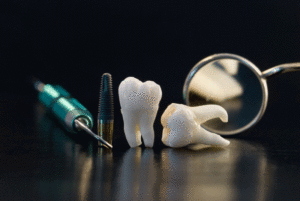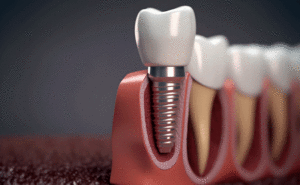If there’s one thing that many dentists point to as being somewhat of an unsung hero of oral health, a common answer might be “fluoride.”
Yes, fluoride, a mineral that’s found in many foods and in water. In a nutshell, fluoride helps prevent tooth decay by making tooth enamel more resistant to demineralization from acid, sugar and plaques. It also helps reverse early tooth decay and is especially important during a person’s adolescent and early teenage years when the teeth are still developing. Here’s a closer look at fluoride and why it’s so important:
Fluoride sources
As we already told you, fluoride is prevalent in many foods (i.e. eggs and milk) and in water. In fact, the next time you reach for a chilled bottled water over the water that’s coming out of your tap, you might want to think again.
That’s because many municipalities include small amounts of fluoride in their water supply, therefore every time you drink from the tap, you’re helping to reduce your risk of tooth decay. It’s estimated that 62 percent of American residents that are served by public water supply have adequate levels of fluoride in the water – check your water bill or contact your city’s water department to find out more details.
Fluoride is also included in many toothpastes and mouthwash. Finally, higher strength topical fluorides may also be administered or prescribed by your dentist to either help fend off tooth decay or aid developing teeth. In fact, most dentists apply a topical fluoride on the teeth of patients ages 6 through 16 at the end of every regular teeth cleaning. As noted, fluoride application is important in the aforementioned years, when the teeth are still developing, but that’s not to say that fluoride isn’t important in the years following this period either.
Fluoride: use as directed
While the benefits of fluoride are well documented in their importance regarding oral health, it’s also important to note that too much fluoride can actually be a bad thing. It’s why fluoride supplements and topical products that offer the mineral in higher strength dosages almost always are prescribed by a dentist. Perhaps the most common defect from too much fluoride is called “fluorosis,” a cosmetic condition. It’s most common in children, usually 8 years old and younger, that have been exposed to an abundance of fluoride.
In general, however, it’s difficult to reach hazardous levels of fluoride when using much lower dosage fluoride-containing products like toothpaste and mouth rinses.
The best way to ensure a healthy mouth is to brush at least twice a day, floss at least once per day and see your dentist at least once every 6 months for a professional cleaning. While you’re brushing – and perhaps even rinsing with a mouthwash – fluoride is likely working in your favor. If you’re drinking from the tap water, fluoride is likely working in your favor. For more information about the wonders that this mineral can do in helping teeth to develop and in preventing tooth decay, contact Caven Dental today.



